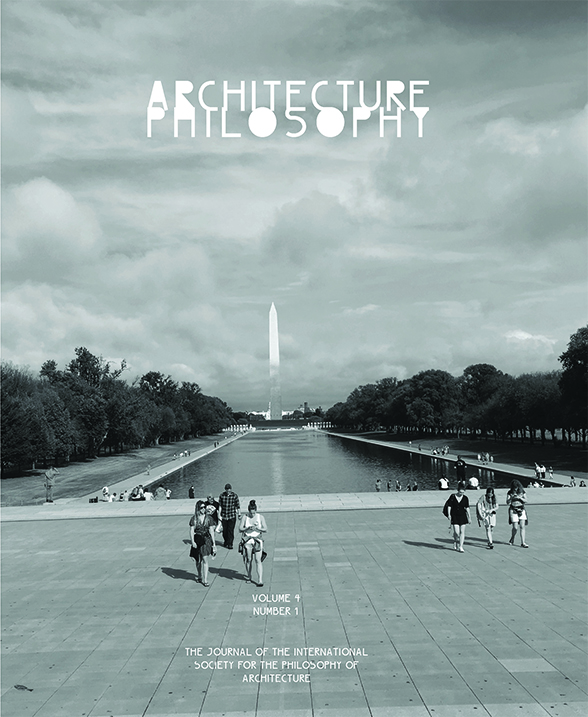Architecture as Participation in the World: Merleau-Ponty, Wölfflin, and the Bodily Experience of the Built Environment
Main Article Content
Abstract
Many discussions of Merleau-Ponty's treatment of the bodily experience of space turn to his opus Phenomenology of Perception, where he most explicitly takes up the theme. Yet in Merleau-Ponty's own view this treatment, while providing rich and valuable insights into spatial experience, remains unsatisfying: ultimately Phenomenology of Perception does not escape a dualism that, despite the work's inestimable contributions to the philosophy of embodied experience, situates it within a flawed tradition running back through Husserl, Kant, and Descartes. As Merleau-Ponty himself puts it, "The problems posed in Ph.P. are insoluble because I start there from the 'consciousness', 'object' distinction." Only in his later philosophy, particularly with his development of the ontology of the flesh, did he approach the fulfillment of his goal to leave this distinction and all its Cartesian corollaries behind once and for all.
